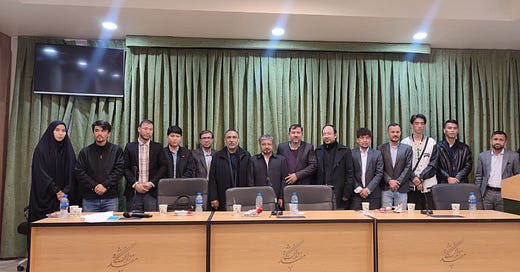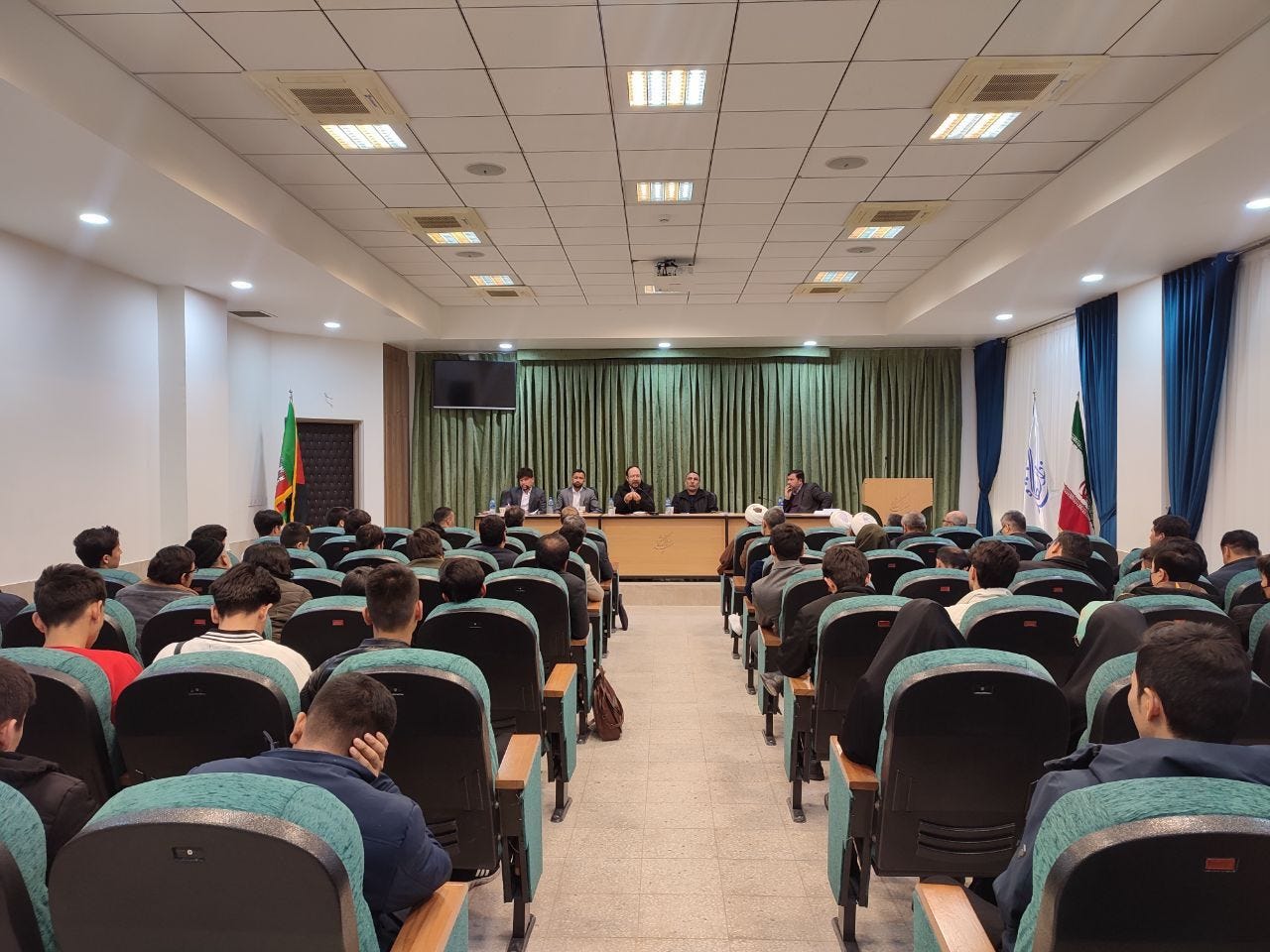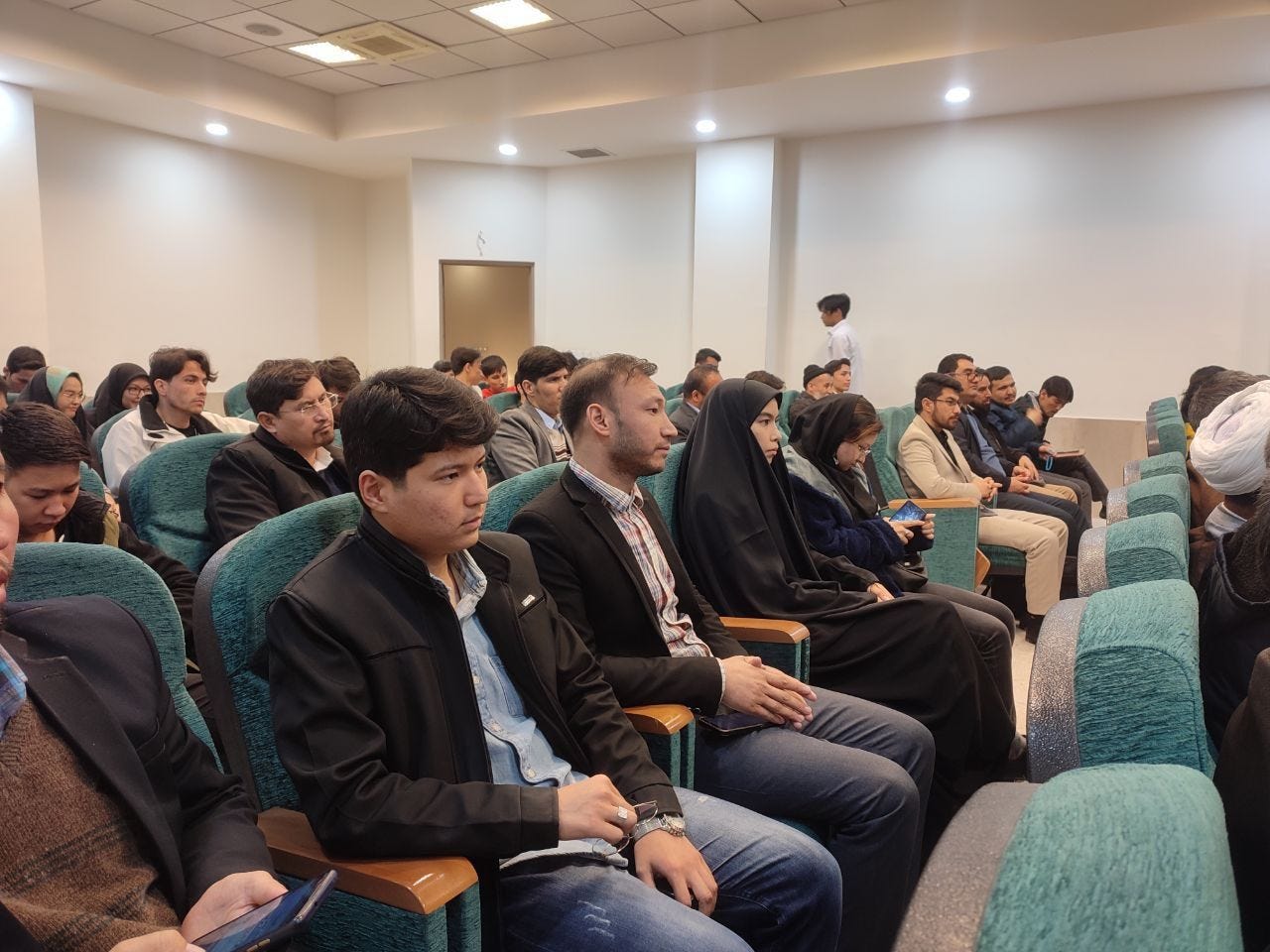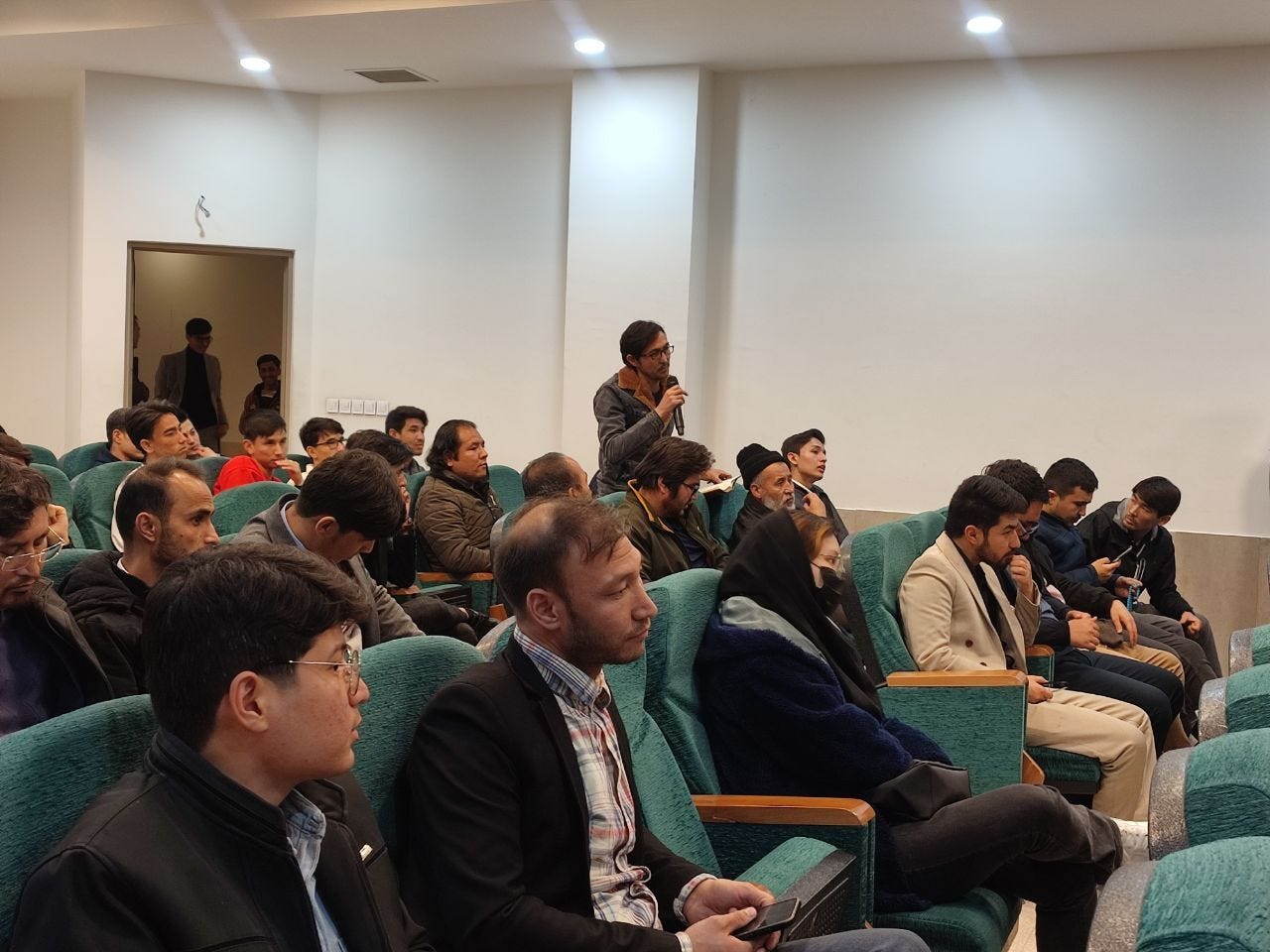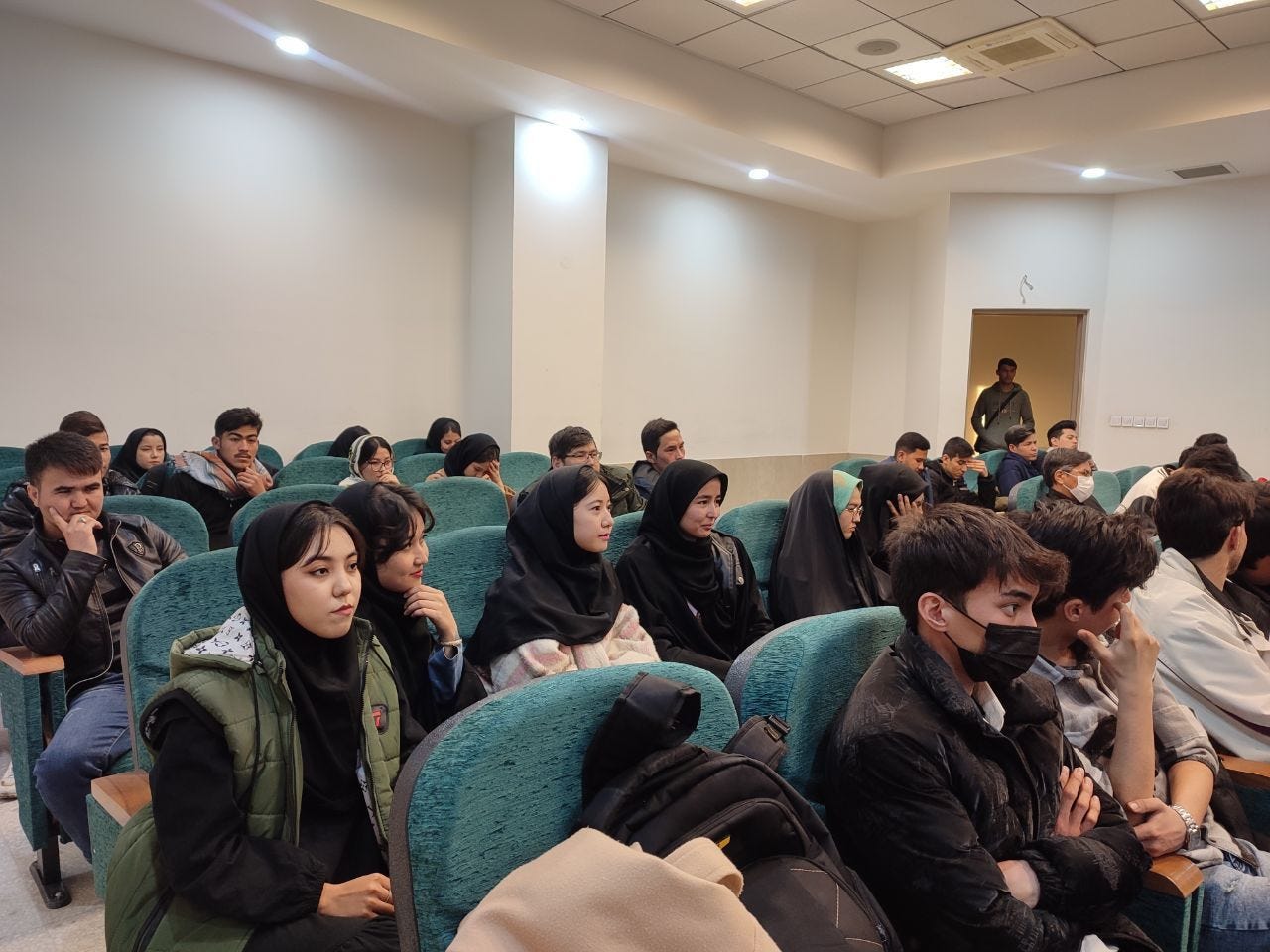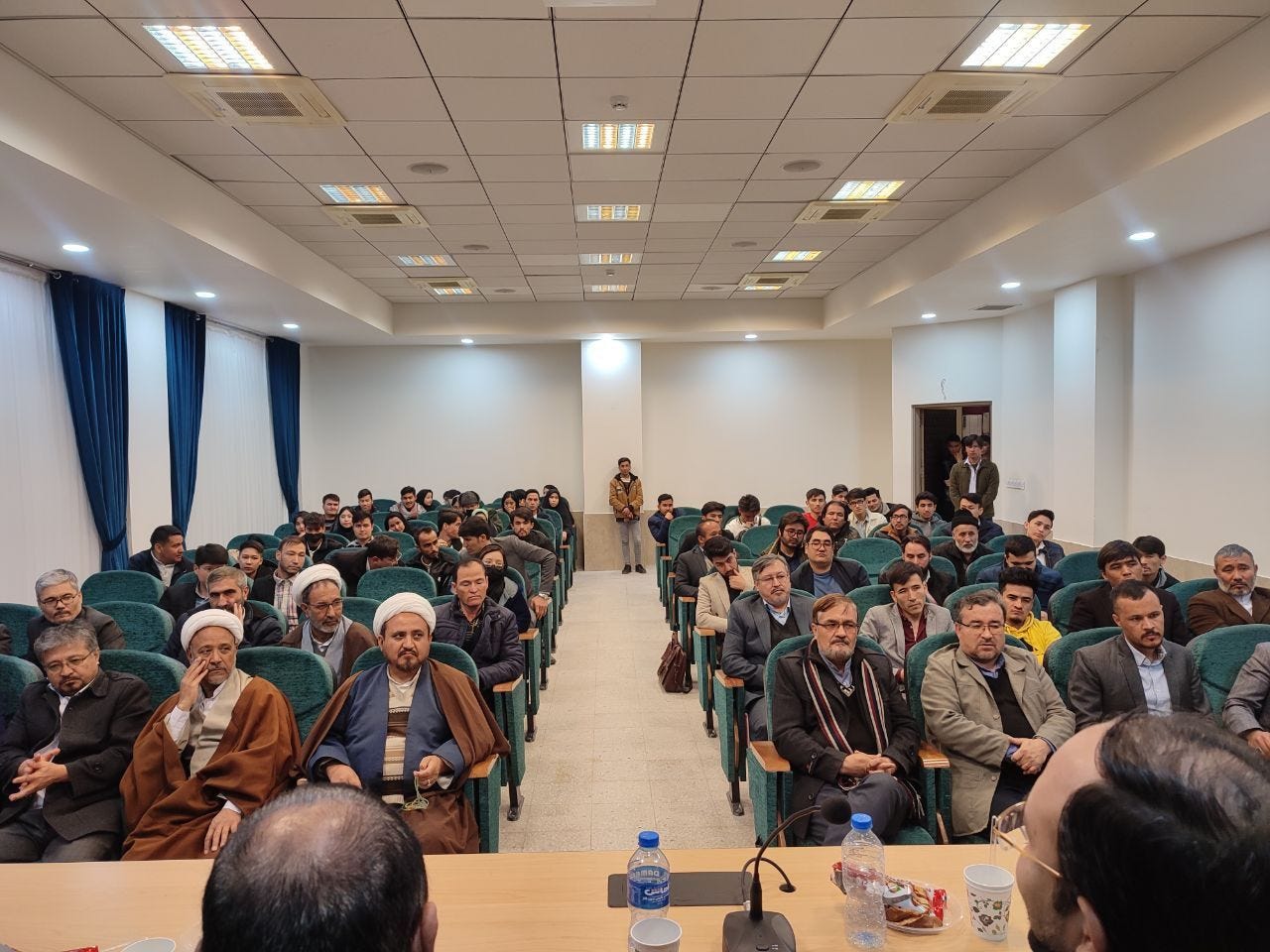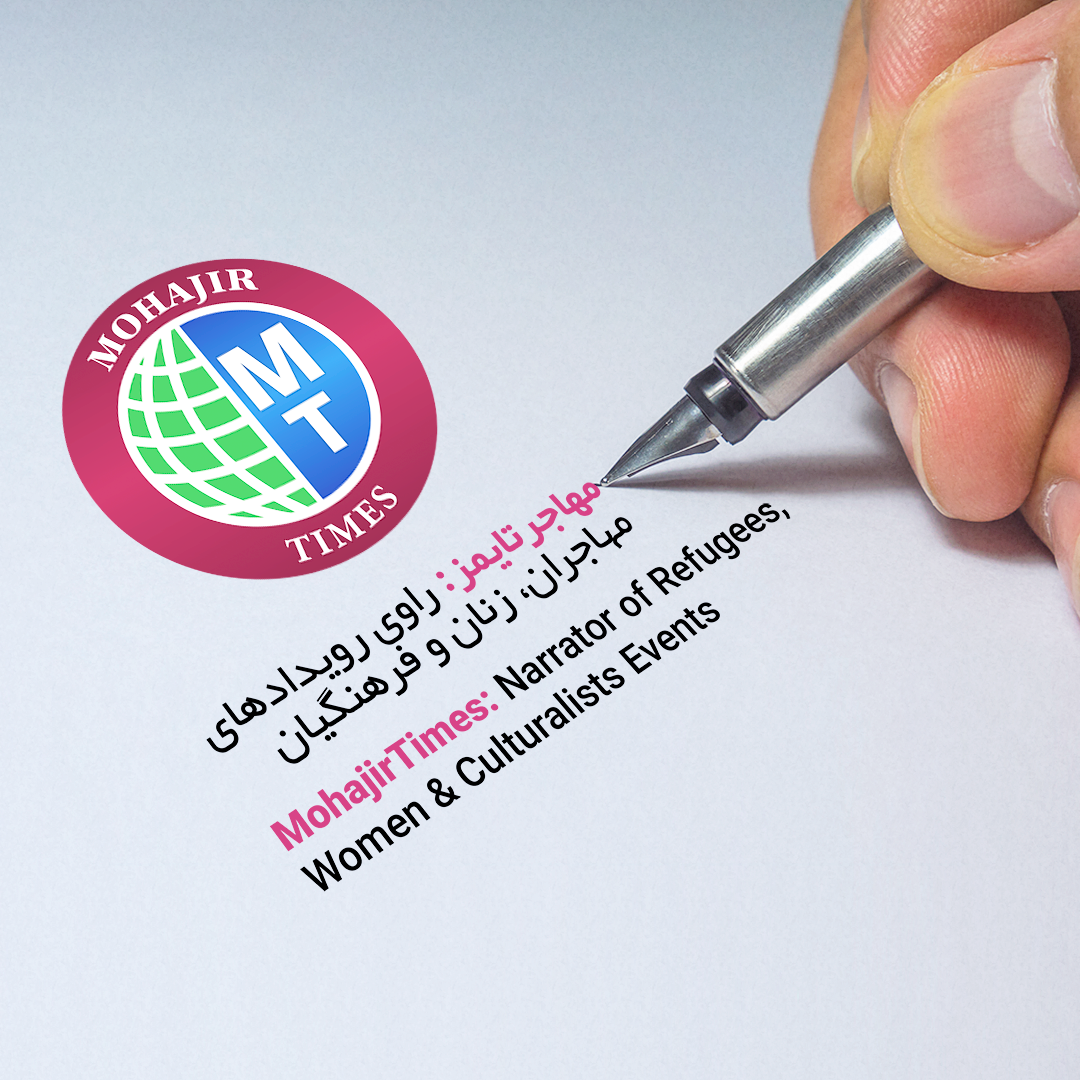Inclusive Government in Thought of Shahid Mazari - Hazara Women’s Social Status in Four Generations
During the twenty years of the republic, Hazara women were at the forefront of participation in various sectors
According to Mohajir Times: On Saturday, March 2, 2024, on the occasion of the 29th anniversary of the martyrdom of Ostad Abdul Ali Mazari, a scientific meeting was held at the Mofid University of Qom province, focusing on “Inclusive Government in the Thought of Shahid Mazari.” The headquarters of this scientific meeting was the center of Afghanistani students and universities of Qom province.
In this meeting, four experts spoke alternately on different topics. Mr. Misbah Ahmadi talked about the history of the Shia Hazaras in Afghanistan, Dr. Mohammad Amin Rashadat about the place of women in the thought of Shahid Mazari, Dr. Amanullah Fasihi about federalism in the thought of Shahid Mazari, and also Alhaj Mohammad Abdoh about national unity in the thought of Shahid Mazari.
Dr. Amanullah Fasihi examined the federalism system. He analyzed that Islamic sciences in today’s era cannot replace modern sciences and meet the needs of today’s modern societies because sciences and societies are becoming more complex, contemporary, and modern-day by day. Also, Mr. Fasihi adapted the theories of the federal system to Shahid Mazari’s thoughts. He said that Shahid Mazari had ordered the students to formulate the federal law according to the socio-cultural conditions of the people of Afghanistan. To some extent, this work was also implemented. Fasihi added that Afghanistan is a country with ethnic-religious diversity. Therefore, it is necessary to establish a system based on these ethnic and religious diversities so that social justice is realized in Afghanistan.
He analyzed that some ethnic groups in Afghanistan do not want their daughters to study in school and also do not accept that their women work outside the home as members of the community. But the Hazara community wants their daughters to attend school, study, and have a job. In terms of social justice, both are true because if they force the Pashtuns to send their girls to school, and on the contrary, if they forcibly deprive the girls of the Hazara community from studying, in fact, social justice is called into question here. So, in order to achieve social justice, it requires that a federal system be established in Afghanistan. Also, he emphasized that we should not be afraid of the federalism system because Islamic countries like the United Arab Emirates also have an Islamic federal system.
Alhaj Mohammad Abdu, a former member of the Afghanistan parliament, spoke about national unity in the thoughts of Shahid Mazari. He remembered his friendship with Shahid Mazari and said I joined Shahid Mazari in 1980. Thus, Mr. Abdu pointed to Shahid Mazari’s activities and added that literary-cultural activities had a special place in Shahid Mazari’s thoughts. Mazari used to teach cultural issues to his commanders and soldiers before they entered the fields and military trenches and then recruited them to the military trenches.
Also, he analyzed the famous words of Shahid Mazari, which were indeed “National Unity, Non-monopoly, Inclusive Government and Non-seeking superiority” and added: “From these views and with the realization of an inclusive government in Afghanistan, the administrations and the geography and provinces of this land should not be classified based on discrimination. Every department, every district, and every province should have an equal share and participation. However, during the republican government, we also had a first-class province, a second-class province, and also a first-class district and a second-class district.”
Dr. Mohammad Amin Rashadat spoke about the social status of women in the Hazara society with a historical approach. He divided the position of women in Hazara society into four generations in four eras. He examined the social position of the first generation of Hazara women at the beginning of the reign of Ahmad Khan Abdali. He said that Stuart Elphinstone, one of the anthropologists and historians of the West, visited Hazarajat areas in 1958. In his book, it is stated that Hazara women had a special social status in their society. Hazara women participated in cultural and social activities. Men did not take any action without consulting their wives and waited for their wives to come and consult with them as well.
Also, Dr. Rashadat examined the position of the second generation of Hazara women after the beginning of the leftist rule in Afghanistan and said that during this period, Hazara women moved more prominently than women of other ethnic groups in Afghanistan and entered the government institutions. In the majority of villages of the Hazara community, girls’ schools were activated. However, Mr. Rashadat did not discuss the position of the second generation of Hazara women due to lack of time. He went to the position of third-generation Hazara women, which was the main topic of Rashadat’s discussion. He related this generation to the Mujahideen period. Mr. Rashadat compared the position of women in this period. He said that Shahid Mazari had a modern view of women, and he gave the right to social, political, economic, and cultural participation in the women’s community. Mazari passed on and ignored the hadith that “Do not Consult with Women Because They Are Deficient in Intellect.” He defined the women’s community’s political, social, economic, and cultural position. But there were also Mujahideen who reduced women to bear children and stay at home with a sexist view.
Mr. Rashadat examined the fourth generation of women of the Hazara societies during the recent republican system. He said that during the twenty years of the republic, Hazara women were at the forefront of participation in various sectors. Most human rights, economic, educational, and cultural institutions were under the supervision and control of Hazara women. The voices of Hazara women were louder and more expressive than other voices in order to provide social justice. Even today, the women of the Hazara community raise the issue of gender apartheid in Afghanistan in the United Nations and human rights organizations around the world. In the last part of his speech, Mr. Rashadat considered the idea of freedom and enlightenment of Hazara women rooted in the Shia religion. He said that the Shia religion has caused Hazara women to enter the political, social, economic, educational, and cultural fields differently from other women of ethnic groups living in Afghanistan.
Mr. Misbah Ahmadi Also talked about the vulnerability of the Shia religion in Afghanistan. He called the periods of Rabbani and Taliban rule black periods for the Shia religion and said that in these two periods, the Shia religion was removed from Afghanistan’s political institutions and education.
At the end of the program, the audience asked questions related to the issues raised. However, due to the lack of time and the stance of some audience members regarding the type of questions in the meeting, the question and answer did not continue, and the meeting ended.

